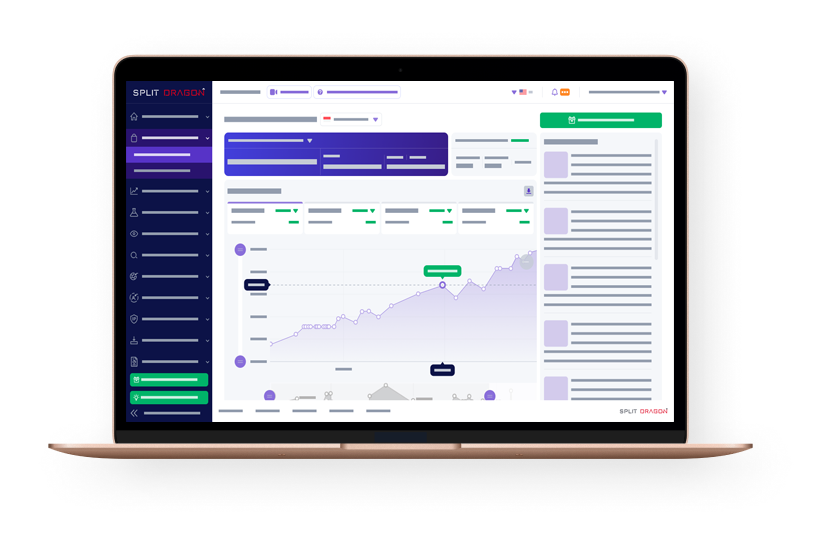While there may be some friction in doing business in other Southeast Asian countries, this is not the case in Malaysia.
In many ways, it has to do with its openness to foreign trade and international commerce. It’s no wonder it’s filled with brands from a range of industry players, both domestic and foreign.
Having fewer restrictions on foreign investment and ownership rules could likely attract foreign investments that would spark a bustling economy.
Listen to the Episode Here: Press Play Now!
Today we are joined by our guest Hans-Peter Ressel of MomentumCommerce.com, as he talks about the prevailing e-commerce climate in Malaysia, especially at this time.
In this episode, he shares the ease and smoothness of doing business in Malaysia and how the cost of living is much lesser here. But as a very diverse country with a population coming from three major groups of Muslims, Chinese, and Indians, that’s where the challenge comes and where his valuable insights and thoughts come in handy.
And one interesting thing to take advantage of is his foreseeing of Malaysia’s e-commerce and where it is headed five years from now. With the entry of TikTok Shop, which is fast catching up with Shoppee and Lazada, that indeed will open gaps that need to be filled in by service providers and unlock many more opportunities for entrepreneurs.
You’ll learn:
- How has life been with Hans now that the world is opening up[01:05]
- The reason why he started Momentum Commerce [03:59]
- Why should one consider Malaysia an excellent place to start one’s e-commerce business[07:15]
- What defines Malaysia’s openness to cross-border, international e-commerce, and foreign trade[11:31]
- What remains unchanged through the years and what has shifted in Malaysia’s e-commerce landscape[14:23]
- Momentum is becoming the number one service provider for TikTok Malaysia [18:18]
- Observations on why Tiktok has gone into driving traffic to conversion within the platform while Facebook didn’t, even if it’s been around for many years now [21:42]
- What an efficient supply chain warehouse setup looks like[25:53]
- Mistakes foreign brands are committing when entering the Malaysian market [29:08]
- Brand-building activities to increase market brand awareness for those starting from scratch[32:43]
- Differentiating the EU and US e-commerce from Southeast Asia[35:09]
- Valuable advice for a startup brand and current brand that just newly got into the Malaysian market[43:44]
- Where he sees Malaysia’s e-commerce going five or more years from now [47:52]
Mentions:
- Hans-Peter Ressel: Website
- Jack Ma
- Lazada
- Shopee
- TikTok Shop
Ideas worth sharing:
“The openness to having foreign investments is very high [in Malaysia]. If you compare it to some other markets where you have a lot of foreign investment and ownership rules, high restrictions to incorporate the business in certain protected industries, and lots of requirements for high paid-up capital; those barriers are much lower in Malaysia. – Hans Peter Ressel
“I feel nothing has changed. It is a very competitive environment. When Lazada came into the picture, there were some local incumbents, and Lazada took over them. It became number one, and Shoppee took over and, by now, probably is the biggest incumbent. This year, the biggest shift is, TikTok has been there for a couple of years as a social media platform, but with the launch of the TikTok shop and the whole incubation of the ecosystem around TikTok service providers, we have seen a dramatic shift and an increase of the importance of that new social commerce environment.”– Hans-Peter Ressel
“When you look into the people now working at TikTok Malaysia, many ex-Lazada and Shopee colleagues are there. You can see the strategic focus on making that social media platform a big e-commerce platform, which works. We started to focus on this in early March, and by now, roughly a little bit more than half a year, some of our clients, Tiktok, is already the number two platform behind Shopee and ahead of Lazada.” – Hans-Peter Ressel
“TikTok became, for us, not only just another channel or just another service. It has allowed us to not only deepen our relationship with existing clients but also start initiating new relationships with new clients that, in the past, didn’t see the need to talk to us because of other engagements or internal capabilities.”– Hans-Peter Ressel
“For us, it’s very exciting because, after all these years of, pretty much in Malaysia, Lazada and Shopee dominating, and Zalora in the fashion space, there is now a new player [TikTok Shop] which kind of shakes up the tree a bit. Then everyone starts to motion, shift around, and assess what that means for them.” – Hans-Peter Ressel
“I think that for us is a process that we have to go through where we really have to explain to those brands that reputation in France, Italy, or Germany doesn’t mean too much if you don’t go through the motions of building your brand in Southeast Asia as well.”– Hans-Peter Ressel
“Malaysia itself is a diverse market; you have the Malays, the majority of the population, 65 to 70% are predominantly Muslims, you have the Chinese demographics, the Indian demographics. Even within Malaysia, the way you position yourself can be very diverse. That’s something that people often underestimate — real local engagement with the demographic you want to cater to or where you feel you have the strongest connection with. And the biggest opportunity is very important, not only across countries within Southeast Asia but even across demographics within Malaysia.” – Hans-Peter Ressel
“I also see that Southeast Asia, with all the algorithms and all the social commerce activities, really allows for smaller local brands to rise.”– Hans-Peter Ressel
“In our industry with a strong focus on e-commerce and starting and building a brand, focusing on unit economics and having a robust and scalable business model is key.” – Hans-Peter Ressel





